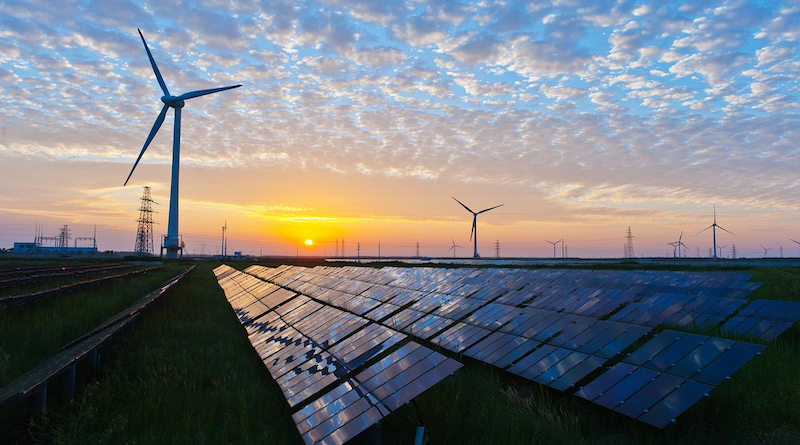Data Market And Federated Learning Prototype Can Improve Performance Of Renewable Production Forecasting Accuracy By 15%
The European project Smart4RES matured the next generation of tools for short-term forecasting of renewable electricity. With privacy as a top priority, INESC TEC, one of the project partners, has an international patent application for developments related to data privacy and sharing. The prototypes developed within the project’s scope can be industrialized “in the next two years”.
The world population keeps growing and is expected to reach a high of 9.7 billion before the middle of the century. All the challenges of this demographic bulge are not yet fully known. Still, one thing is sure: it will lead to a dramatic increase in energy demand, which is expected to approach a 25% increase compared to current consumption by 2030.
Renewable energy sources (RES) are, therefore, crucial in this equation. It is no surprise then that power systems around the world are facing significant changes because of the massive penetration of weather-dependent RES. And accurate forecasts are vital: they help grids run safely and reliably while promoting a cost-effective operation by optimizing production scheduling and minimizing the need for reserves; system operators also use forecasts to balance the supply and demand of electricity to lessen the unpredictability associated with said aspects. However, the integration of RES into the power systems requires a new operating and planning model. The recently finished European project Smart4RES led to novel contributions and improvements in RES forecasting.
Three and a half years of research were devoted to creating the next generation of tools for RES short-term forecasting and developing new decision-aid methodologies based on artificial intelligence and human-operator interaction. INESC TEC, one of the 12 partners of the project, developed solutions that can improve RES forecasting accuracy up to 15%. “To achieve this result, the researchers developed a privacy-preserving protocol – patented by INESC TEC – for secure time series forecasting on distributed data, algorithmic solutions, and a prototype for monetization of data (data market) from RES power plants”, says Ricardo Bessa, Senior Researcher at INESC TEC.
Combining different areas, like weather, operational research, data science, power systems, Smart4RES gathered organizations from six different European countries to develop new tools and solutions for the energy system of the next decade (i.e., with high RES integration levels). Smart4RES also aimed to create new business models for forecasting services, now driven to exploit data from different owners and create economic incentives. To achieve this goal, it is important to address two requirements: data privacy and algorithmic solutions for data valuation.
“The project developed and demonstrated the real-world performance of new algorithms and systems for numerical weather prediction, RES power forecasting, and also developed a prototype data marketplace (based on distributed ledger technologies) for renewable production forecasting”, adds the researcher.
Focus on privacy
With a focus on privacy-preserving protocols for very short-term RES forecasting, the Institute’s primary research outcome is a novel combination of data transformation and decomposition-based methods that allow the forecasting model to be fitted in another feature space without decreasing its forecasting skill. Ricardo Bessa highlights the Porto-based Institute’s work in improving RES forecast accuracy by combining geographically distributed information from different owners.
“INESC TEC has an international patent application for developments related to data privacy, and the prototypes developed in the project can be industrialized in the next two years’ time. We are currently industrializing some results related to data sharing in a common space under the Horizon Europe ENERSHARE project”, he adds, reinforcing that Smart4RES outcomes are fostering new projects and ideas.
INESC TEC also tied together information on uncertainty forecasting of RES generation into system operators’ control centers. This ensures minimum inertia levels for system security in isolated systems (islands) and supports electrical grids with increasing bottlenecks due to integrating distributed RES. For instance, “with these new approaches, we expect” a 20% reduction in diesel backup groups and an 85% reduction in specific load shedding events in isolated systems.
At the final conference of the project, which took place in April, INESC TEC researchers Ricardo Bessa and Carla Gonçalves (whose Ph.D. thesis developed within the scope of the project received the EDP Labelec Merit Award 2022) presented some of these tools, which will support transmission and distribution system operators, market traders, RES-based power plants operators, and digital services providers.
The project started in 2019 and ended last April. It received funding from the European Union’s Horizon 2020 research and innovation programme – approximately four million euros.

